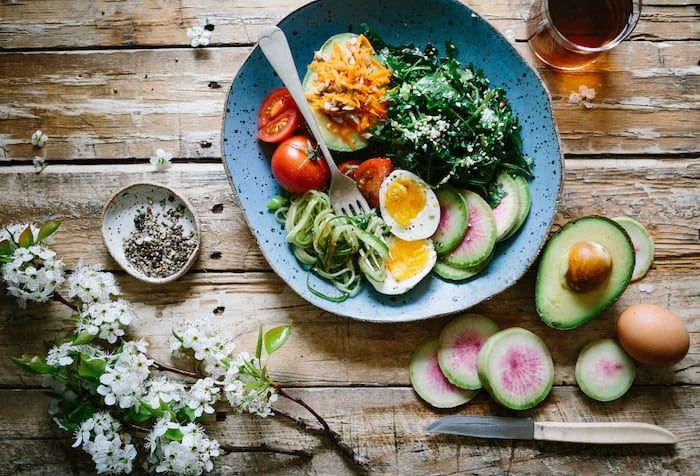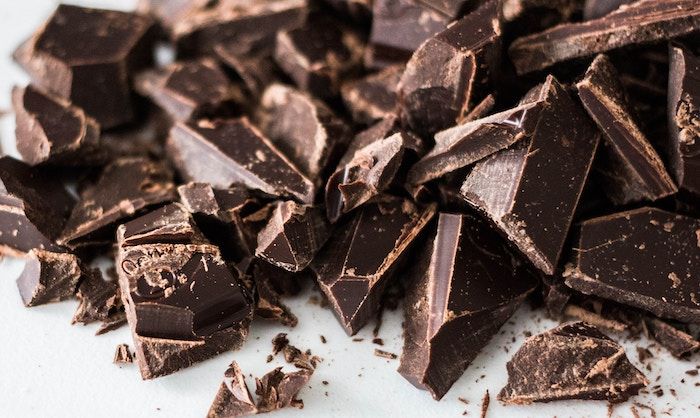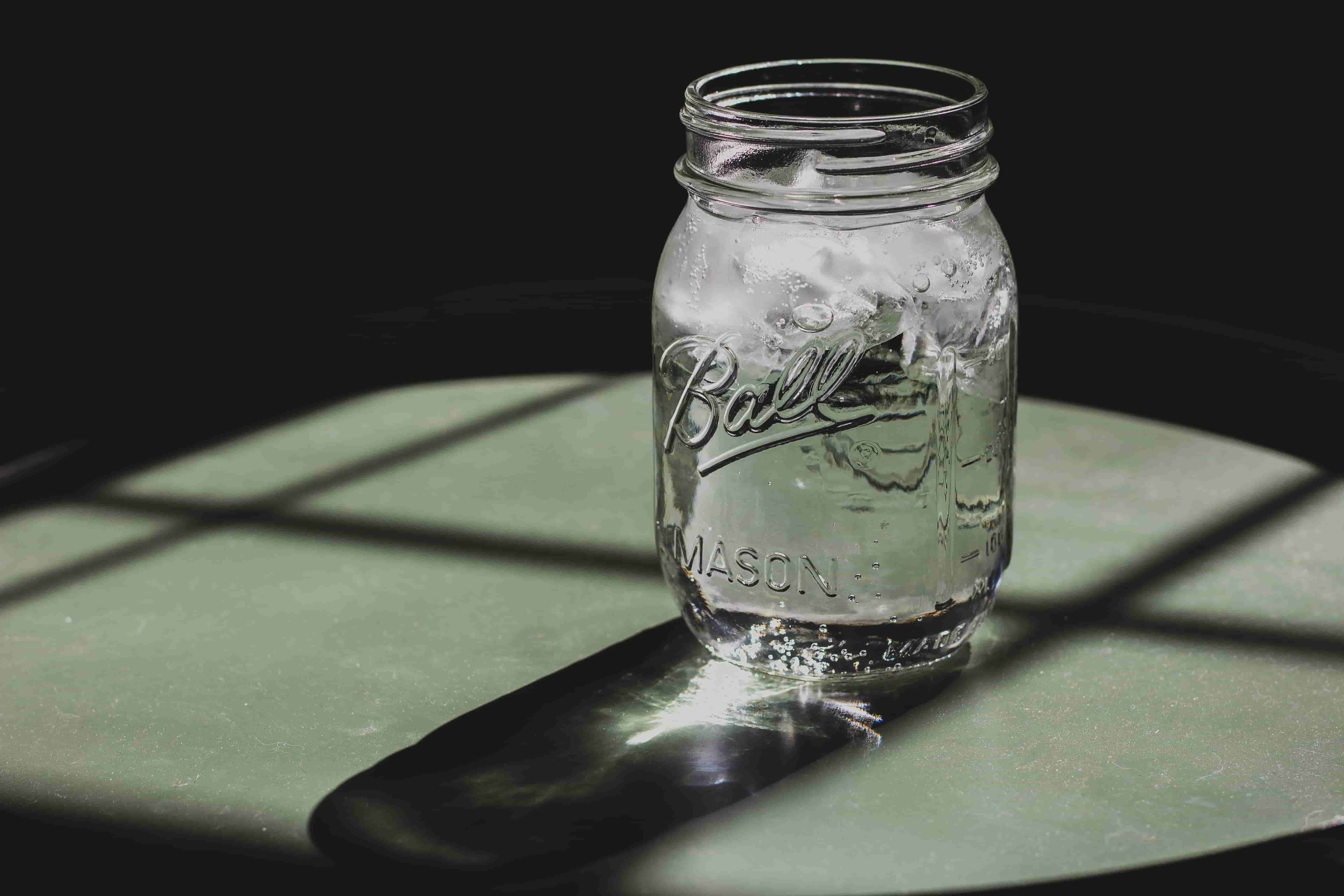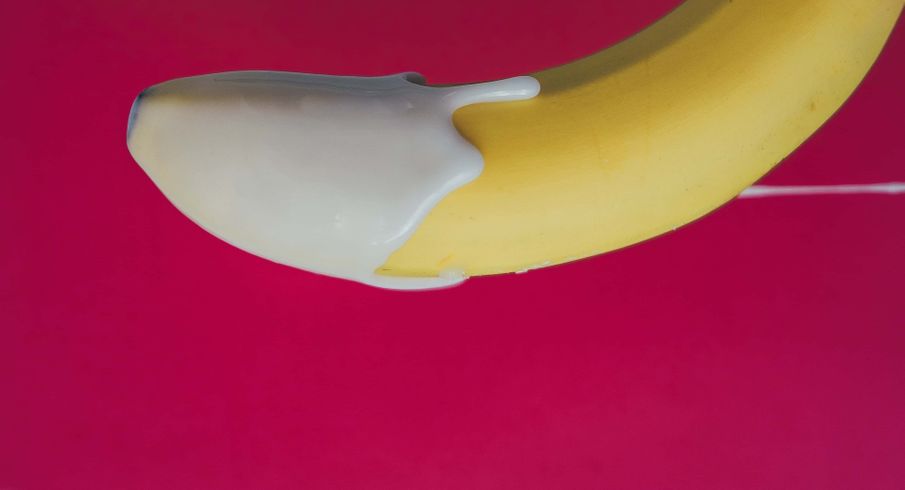We explore the impact food can have on your libido, stamina, and your overall sense of wellbeing
It’s an old adage: you are what you eat. But could there be something to it? Ensuring that we each have a healthy, balanced diet, lead an active lifestyle, and look after our mental health are all imperitive in creating a happier, healthier (sex) life.
While there are plenty of articles out there highlighting the foods that could be ‘killing your sex drive’ and ‘destroying your sex life’, surely there must be foods that can have a positive impact... right?
We share the top foods that can help boost your libido, decrease erectile dysfunction, and increase your overall sense of wellbeing.
Food for thought: do aphrodisiac foods really work? We explore the myths and misconceptions around food aphrodisiacs.

Happy hormone food swaps
Keeping our hormones balanced can help lead to a steadier (and more fulfilling) sex life. When our hormones become imbalanced, this can negatively impact our mood, and may even suppress sexual desire.
Nutritionist Nicki Williams explains: “Hormone imbalances can make us feel exhausted, stressed, anxious, depressed, irritable, forgetful and unable to concentrate. We might have digestive issues, poor skin, hair and nails, or frequent infections.
“Hormones work together so when one gets out of balance, others can be affected. For instance, when our stress hormones are up, it can affect our thyroid gland, our digestive system, our sex hormones and the way we deal with sugar (insulin).
“As we age, our hormones naturally decline, which can give us those ‘ageing’ issues like fatigue, weight gain and memory loss. But what we eat and drink, and how we live our lives has a direct affect on our hormone balance. So a few changes to your diet and lifestyle can really help support your hormones, especially as you get older.”
Making a few healthy food swaps can help balance your hormones and get things back on track. Packed full of Vitamin E, avocados can help improve our production of testosterone, oestrogen, and progesterone. Switching to organic foods can help reduce the number of pesticides you are exposed to, which may have negative impacts on health and wellbeing.
For men, making sure you have enough testosterone isn’t only important for your sexual health, but can also affect your bone, muscle, and hair. As you get older, your testosterone levels can decrease, making it even more important to make sure you are having a nutrient-filled, well-balanced diet.
Eating more tuna (high in vitamin D), low-fat milk, beans and egg yolks can all help boost testosterone production whilst providing great sources of protein and vitamins.
At any age, if you’re worried you may be experiencing a problem with a hormone balance, make sure to speak with your GP to help rule out other symptoms and causes.

Boost your libido with nature’s aphrodisiacs
Libido-boosting foods have been a popular staple throughout history. While there is some debate over whether they really work or not, many foods credited with being natural aphrodisiacs do come with their own benefits.
Oysters – one of the most famous foods for getting in the mood (though the slimy texture should be enough to put anyone off). But why is that? High in zinc, oysters and other zinc-high foods including pine nuts, red meat, lobster, and fortified breakfast cereals, help provide high mineral our bodies need for vital, everyday functions. As well as helping our stamina, zinc regulates testosterone levels while helping to increase sperm quality.
Basil – a good source of magnesium and iron, basil may not be the first thing that comes to mind when you’re thinking of sexy foods, but it can promote better cardiovascular health, improve blood flow, and increase our desire (and ability) to, ahem, perform.
Dark chocolate – more than just a sweet treat, thanks to its phenylethylamine (PEA) or ‘love chemical’ content, dark chocolate can act as a natural aphrodisiac, while the cocoa content can help get your blood pumping and increase blood flow.
Garlic – stinky breath aside, garlic can help improve blood flow, increase iron absorption, and improve circulatory health. Just make sure you aren’t the only one chowing down on this overpowering herb – or you just might risk your evening ending on a more sour note.
Flaxseeds and pumpkin seeds – helping keep hormone production at its peek, these kinds of seeds are packed full of Omega 3 acids which can increase our dopamine and serotonin hormone production. Happier, healthier, and heightened desire all-round.

Stamina-boosters
If you’re looking for a way to improve your stamina, there are numerous natural ways to keep things heated for longer. Ensuring your circulation is good can not only lead to an improved sexual response for men and women (as well as benefiting erectile responses), but can also help improve your stamina.
Ensuring your diet includes wholegrains, a wide range of fruits and vegetables, nuts, legumes, seafood, and healthy oils (olive or sunflower) can all help keep your heart healthy and happy.
If you find your energy flagging, it can also be worth taking stock of how much stress you are under, as well as how much sleep you are getting. Poor quality sleep can be linked to low energy levels, lowering your overall performance and concentration.
If you are experiencing depression, this can also be linked to fatigue and low energy. Experimenting with relaxation techniques, becoming more active, trying mindfulness and meditation, or exploring counselling can all positively impact your overall sense of wellbeing.
Nutritionist Jo Travers shares her top tips to help boost your energy levels by tweaking what (and when) you eat.
“Eat iron containing foods. Women need a lot of iron. Iron in your blood carries oxygen around your body to every cell and organ, and if you haven’t got enough of it you will feel really tired. Iron deficiency is a relatively common problem among women in the UK, largely because women lose iron-containing blood during menstruation. Try and have some vitamin C (from orange juice for example) alongside vegetable sources as this helps absorption of the iron.
“Ensure you eat five a day. Vitamins and minerals are needed for every single process that happens in your body, including turning food into energy. Fruit and vegetables are full of these micronutrients. They are also high in fibre to help level off the rate that carbohydrates are released into your bloodstream, and to maintain bowel health, which if neglected can lead to a lethargic feeling.”
Nutritionist Severine Menem explains it’s not just what we eat that affects our energy levels, but what we drink, too.
“Are you drinking enough water? It is water, and not liquid. Most people don’t realise that they lack energy simply because they are dehydrated. Water is needed by the body for a number of metabolic reactions. So you need to drink an adequate amount of water throughout the day until your urine is a pale yellow. If you are not there yet, start gradually increasing your intake of water while stopping or reducing your consumption of stimulants such as coffees and teas.”

Tackling erectile dysfunction
It’s not a topic often spoken about, but erectile dysfunction affects more men than you may realise. More than one in five (21%) of male smokers have been unable to perform in the bedroom, while some statistics put the numbers as high as one in two men in their 30s experiencing erectile dysfunction.
According to experts, a number of physical and psychological factors can cause impotence. From obesity to high cholesterol, anxiety, stress and depression to alcohol consumption, there can be any number of contributing factors.
Research suggests that eating foods rich in flavonoids may help reduce the risk of erectile dysfunction, with foods such as blueberries and citrus fruits showing particular promise. Increasing your fruit intake can help reduce your risk by up to 14%, while switching towards consuming a more Mediterranean-style diet could both help prevent erectile dysfunction whilst boosting other areas of your sex life.
To discover more about how food and nutrition can affect your sex drive, impact your mood, and improve your overall sense of wellbeing, or to find an experienced Nutritionist, visit Nutritionist Resource.


Comments